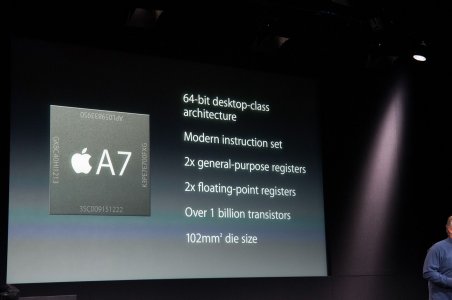RaduTyrsina
News Team
The iPhone 5s is the first smartphone in the world to come with a 64-bit architecture, which essentially means we will have faster speeds, better performance and advanced features. This has happened before with computers and game consoles. But what impact will a 64-bit architecture have on the king of the tablets, the iPad?
According to Chris Whitmore of Deutsche Bank Equity Research, a potential 64-bit iPad 5 is going to put tremendous pressure on already decreasing PC sales. In a note to investors, he said the following:
We...expect growing [desktop] virtualization and iPad deployments in the enterprise to pressure corporate PC sales through 2014-15...We expect AAPL's [Apple's] iPad refresh to include 64 bit architecture, which should enable a greater array of enterprise App development and facilitate greater enterprise penetration over time. In the near term, back to school PC demand appears relatively soft and recent new hardware releases (Haswell) had little impact spurring incremental demand. Furthermore, we believe the corporate upgrade cycle will peak in [second half of calendar year 2013] as corporates complete Win 7 transitions ahead of Microsoft's ending support of XP in early 2014.
The area where Whitmore sees the iPad gaining fast traction over PCs is in the enterprise market, where Apple’s tablet could get help from more advanced apps that would make the most of Apple’s A7 processor. If a 64-bit processor makes its way to the iPad 5, then there are chances we might see it in its smaller sibling, the iPad Mini. And that will increase the range of targeted consumers.
But I think we should take this with a grain of salt. Apple's transition to 64-bit with the iPhone 5s and a potential upgrade with the iPad 5 might be just about laying the groundwork for the future and it won’t have an immediate effect on the market. First of all, developers need a good amount of time to figure out and align their apps to make the most of the radically changed processor. And secondly, I think there’s yet not a definite need for such apps.
However, the market might prove me wrong, as we know that the iPad can be a very versatile and useful utensil for doctors, engineers, pilots that might find use in advanced apps that are perfectly tailored for their specific needs.
Source: Cnet
Last edited:

